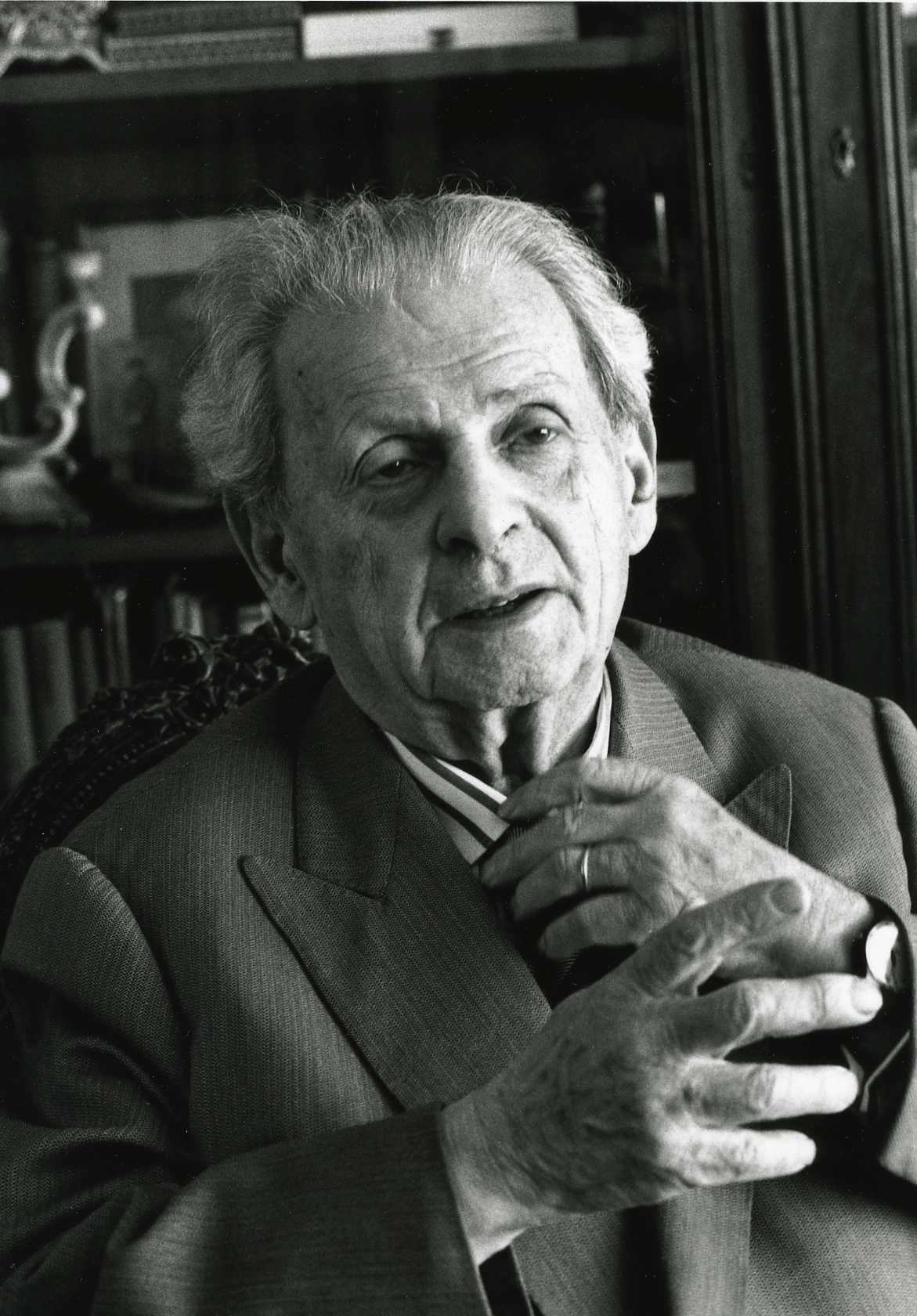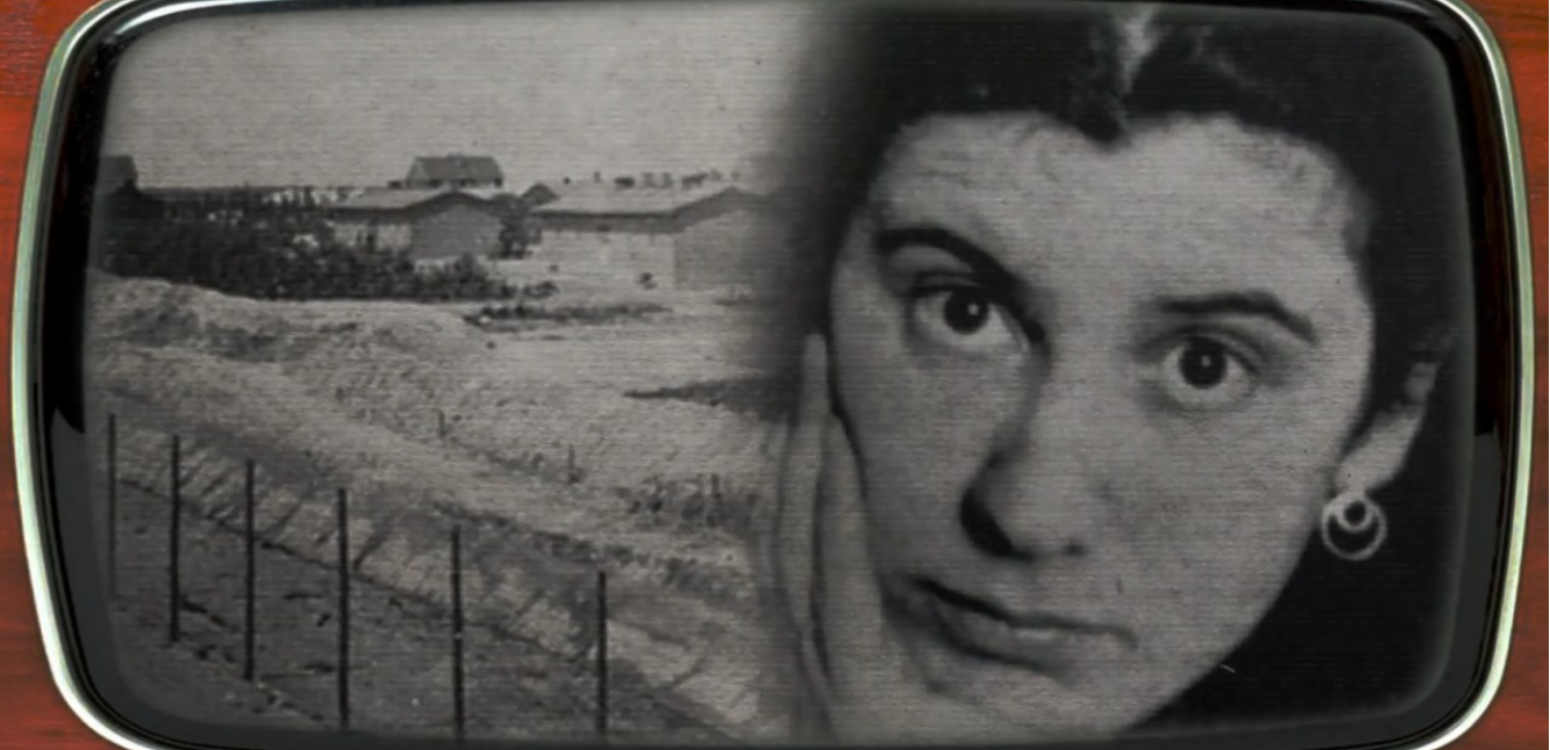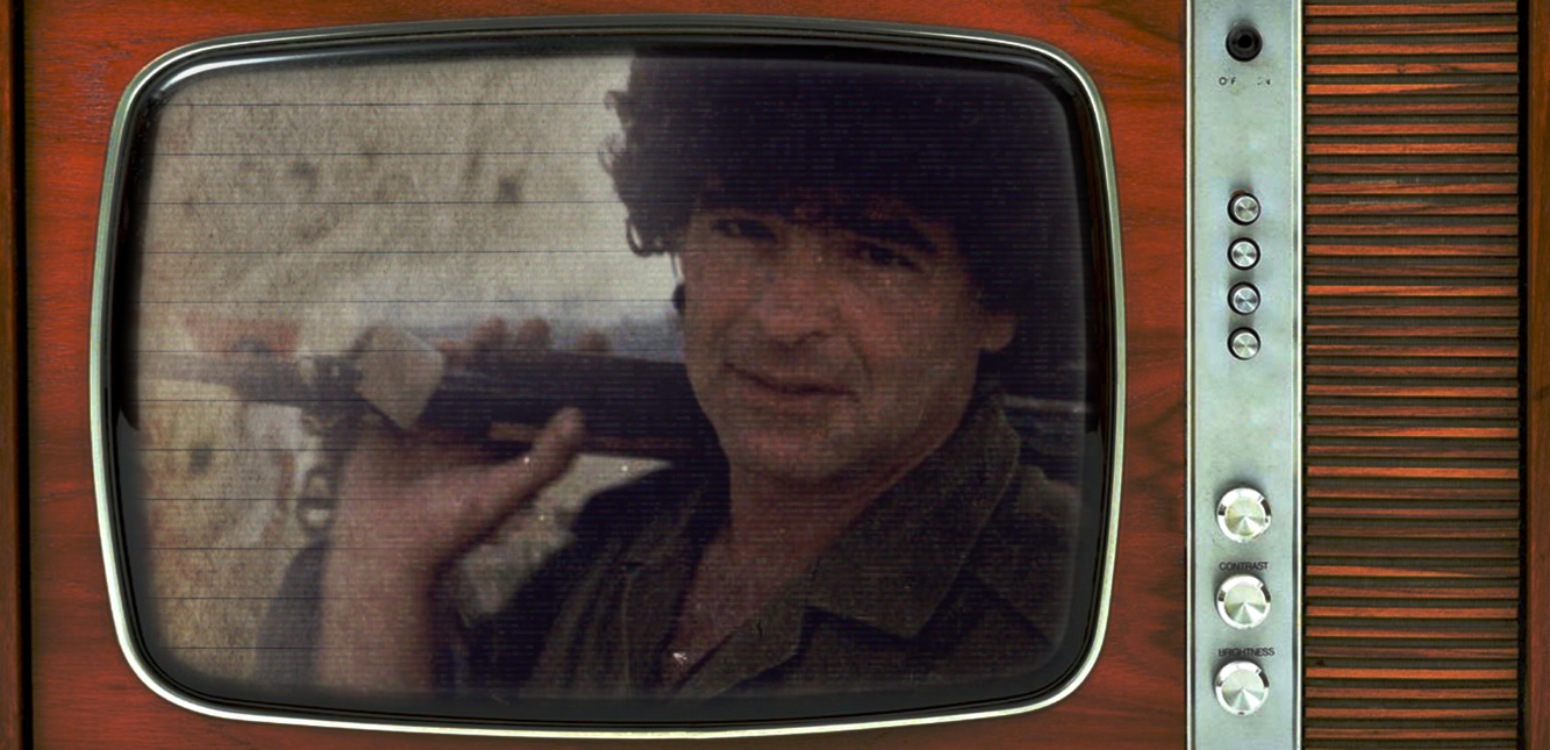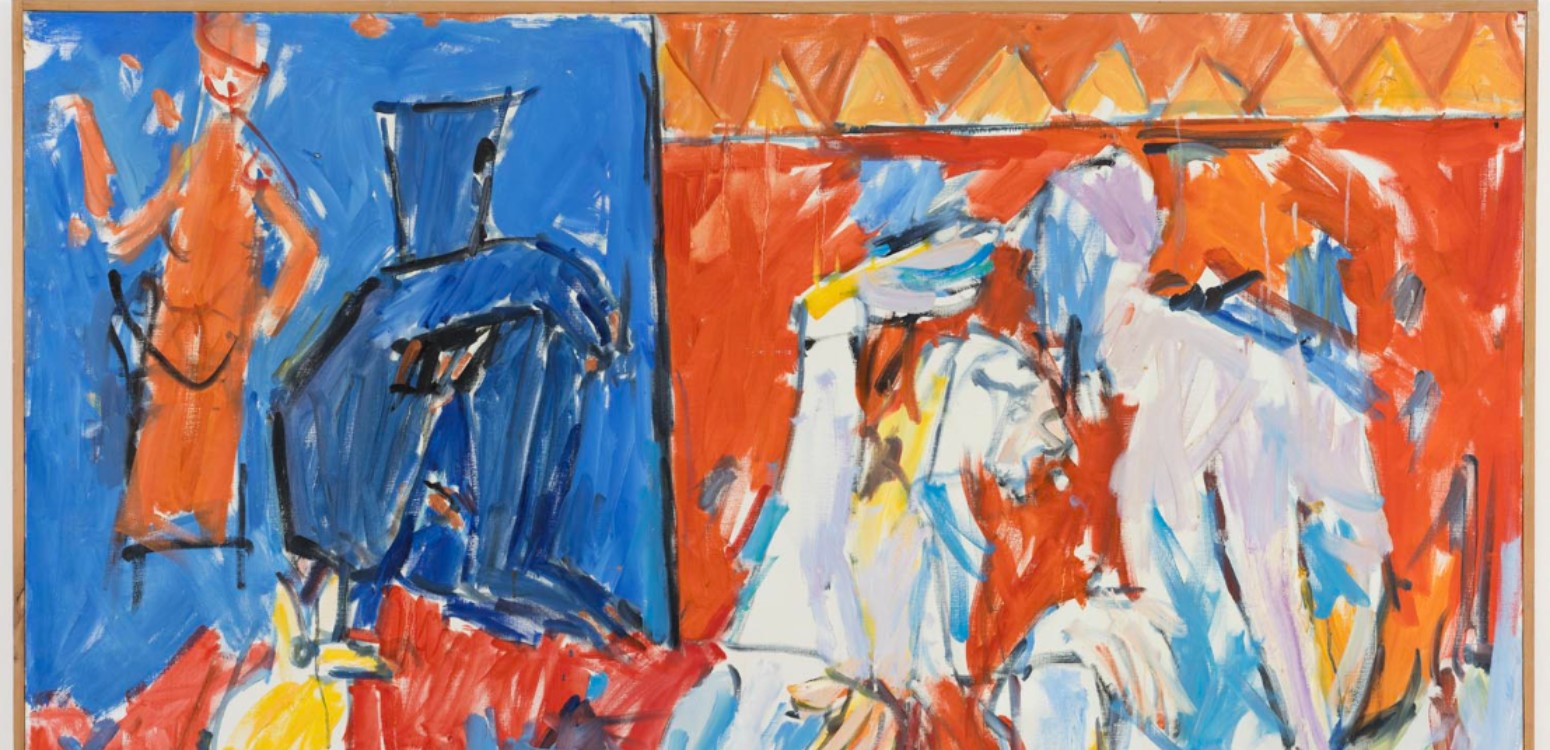Luminary or tramp? Genius or madman? The mysterious Monsieur Chouchani was all of those things. Recent years have seen renewed interest in one of the most enigmatic figures in the history of Jewish scholarship
They say he was a genius, that he had a photographic memory and an extraordinary depth of understanding. People who knew him spoke of him with a sparkle in their eyes, saying that he was the most brilliant man they had ever met. Among his students and fans were outstanding and esteemed personalities such as philosopher Emmanuel Levinas and Nobel Peace Prize laureate Elie Wiesel.
The most educated academics and renowned religious figures spoke of him as if mesmerized. They affirmed that he was extraordinary, almost superhuman, with unprecedented knowledge and wisdom – so much so that he became known as the Jewish Socrates. But no one knew who he was.
This is the unbelievable myth of the man nicknamed Monsieur Chouchani or simply Chouchani (sometimes spelled Shoshani) – a legendary teacher that we know little about. Not even his real name or place of birth.
The influential vagabond
In recent years, there has been much renewed interest in the mysterious Monsieur Chouchani – his notebooks have been discovered and many of them donated to the National Library of Israel, finally enabling scholars and researchers to delve into his cryptic writings and bask in Chouchani’s wisdom. Up until these discoveries his legacy was considered myth and hearsay.
From Socrates to Shams Tabrizi, history is full of dishevelled and unkempt characters who seemed to have appeared out of nowhere to question and educate great scholars. Jewish history, too, has its share of otherworldly larger-than-life enigmatic figures. What makes Monsieur Chouchani so unique is the fact that he lived – and died – fairly recently. Recently enough for many of his students to still be alive. Recently enough to assume that his true identity can be verified.
In addition to Emmanuel Levinas and Elie Wiesel, the list of admirers of Chouchani included Rav Yehuda Leon Ashkenazi also known as Manitou, who was a spiritual leader of XX century French Jewry; Prof. Shalom Rosenberg of the Hebrew University, and many others. All of these connections are well documented – these famous people have spoken and written about Chouchani. In addition, there are stories that Chouchani knew HaRav Kook, that at some point he corresponded with Albert Einstein, and that the Lubavitcher Rebbe studied with him.
Levinas is known for creating a bridge between Judaism and modernity. This concept, as many others, may have stemmed from Monsieur Chouchani’s teachings. Chouchani valued morality, but never placed Jews above others. His views were inclusive and universalist and as such were highly influential among modern European Jews of the XX century..jpeg)
He put a spell on you
No one disputed the fact that Chouchani cast a spell on whoever listened to him. Those who knew him told of an unparalleled genius. They said he was kind, generous and humble. At the same time, many saw something dangerous, even diabolical, in him. Many attested to him being unpleasant, difficult and crazy. There is an abundance of stories and legends about him and his influence was immense and far reaching, but very little is actually known about his true biography.
Books and articles have been written about Chouchani, documentaries have been made, and many people who knew him personally have been interviewed and filmed. And yet, his story is full of contradictions and gaps.
The question is, how can such a great man, whose wisdom inspired so many famous people – many of them still alive – remain anonymous? The answer is simple: he didn’t want us to know him. He only wanted people to learn from him. And it is safe to assume that out of respect for their teacher, even those who did know some details about his life, guarded his true identity, his past and his secrets.
Outsmarting the Nazis
The mysterious Monsieur Chouchani was born at the end of the XIX century, but it is unclear when exactly and where. Some claimed that he was born in Morocco, others believed that he was born in Jerusalem, or perhaps in Brest (or Brisk as it was known in Yiddish) in Belarus.
Where he was and what happened to him during the Holocaust is a big question. About this, too, there are legends. All of them have the same punch line: he was so smart that outwitted the Nazis and survived.
One story claims that he was interrogated by the Gestapo, and told the officer that he was a math professor. The officer didn’t believe him and said that he was a math professor himself. Chouchani offered the Nazi a deal: he would present him with a mathematical problem; if the officer solved it, he would have Chouchani executed. If he failed, he would be released.
Another story says that the Gestapo stripped him. When they saw that he was circumcised, Chouchani said he was a Muslim. The officer didn’t believe him, so Chouchani started reciting the Quran. The Nazi still didn’t believe him and brought in an Imam. The Imam sat with him for hours and in the end attested that he had never met such an expert in the Quran before, so there was no doubt that he was indeed a Muslim.
After the Holocaust, Chouchani wandered the world and gained a following of Jews hungry for knowledge wherever he went – from France, through Israel, to South America. What he was searching for, or what he was escaping from, is unclear, and many theories have been developed about this.
It is known that the great teacher died of a heart attack in 1968 in Montevideo, Uruguay, and is buried at the Israelite Cemetery of La Paz. His gravestone is adorned with words by his devoted disciple Elie Wiesel, and every year on the day of his death, the Jewish community in Montevideo holds a memorial service for him.
But just like Elvis and other mythic figures, one can find conspiracy theories claiming Chouchani is not the man buried at La Paz. A book was written in Italy in recent years claiming that he is still alive – albeit at the humble age of more than 120 – and that he was sighted in Milan.
The search for knowledge
Another question is how could so many people be so fascinated by a ragged, neglected and dirty homeless-looking man who schlepped an old suitcase around and slept on benches? Monsieur Chouchani was a vagabond – a clochard in French. However, this tramp apparently knew everything. He was a true polymath. His knowledge spanned a vast array of subjects, such as philosophy, history, Jewish scholarship (Bible, Talmud, Halacha, Kabbalah, etc.), mathematics, physics, astronomy, chemistry, biology, medicine, and so on. He knew the Bible and the Talmud by heart and apparently spoke 30 languages.
When you ask people who knew him if he was perhaps an autistic savant, like the ones who know the entire telephone book by heart, they protest vehemently: “No way! He not only knew everything by heart, he also understood everything, and made connections between all the bits of knowledge he possessed.” When you ask if he was a walking encyclopedia, they exclaim: “No way! Encyclopedias are dry and boring; Monsieur Chouchani was fascinating! His lectures were vivid and mind-expanding.” They say that people could sit for hours and listen to him without ever getting tired. He was so brilliant that even those who claimed he was a cruel teacher, and highly unpleasant at times, still spoke of him only with infinite awe, love and admiration.
And perhaps he never was?
All of this is so strange that one cannot escape the feeling that perhaps the odd and enigmatic Chouchani is just a figment of imagination, what some have previously called “a collective hallucination.” Some have theorized that perhaps the deeply traumatized Jews of post-World War II Europe needed a figure like Chouchani – a hero of infinite knowledge and wisdom – so they made him up. And perhaps there was more than one Chouchani; maybe stories about different people, from different places, came together in this one mythological creature. However, further investigation led scholars to believe that he was real; he just hid his identity extremely well.
Chouchani hid his real name during his life and probably assumed pseudonyms and fake identities also for practical reasons, like entering countries with false documents, and perhaps fleeing the Gestapo in WWII. Perhaps his surname was Shoshan or Ben-Shoshan. Nowadays, the names that are associated with him are Hillel Perlman, Mordechai Rosenbaum and Victor Souchon. There are several photos of him online that one can hope are real. In the photos he does not look like the dirty and neglected man everybody described, but perhaps this is due to the fact that they are earlier pictures and he might have become scruffy looking later on, as well as the fact that they are official photos.
No one knows much, or reveals much about Chouchani, but the fact that his secret notebooks have been discovered is a huge leap forward in understanding this mystery. Since everything he taught he knew by heart, and he never used books, many thought he never wrote anything down, which is another reason why his notebooks are such a big surprise.
His extremely dense notebooks include pieces on a wide range of disciplines, in tiny Hebrew handwriting. Written in a concise and coded manner, they are full of allusions and omissions. The notebooks include reflections, mathematical calculations, quotations from the scriptures, and also personal passages that read like a kind of diary. It is certainly not easy to read them, but now that his notebooks have been revealed, they can also be viewed online, and anyone who wishes to do so can try to decipher their contents.
Main Photo: The image was generated by Copilot software



















